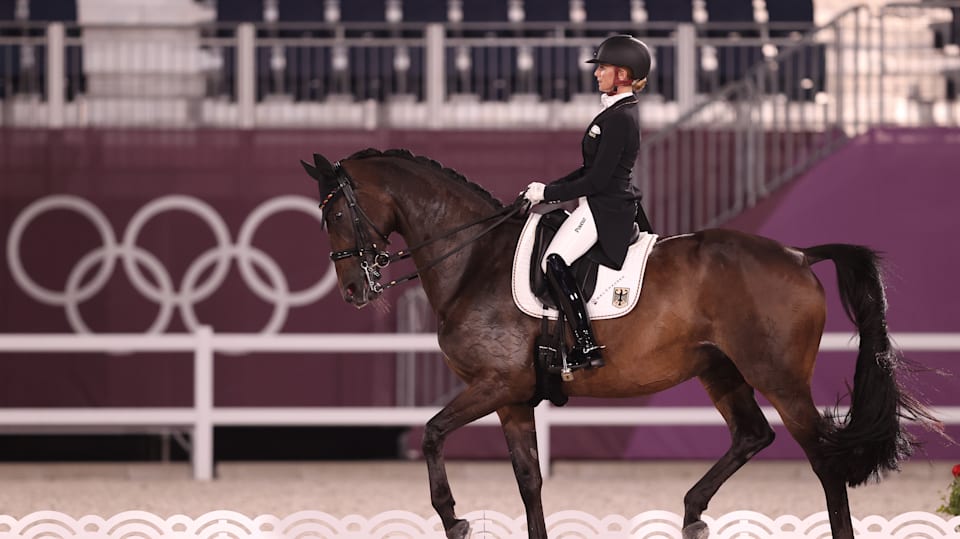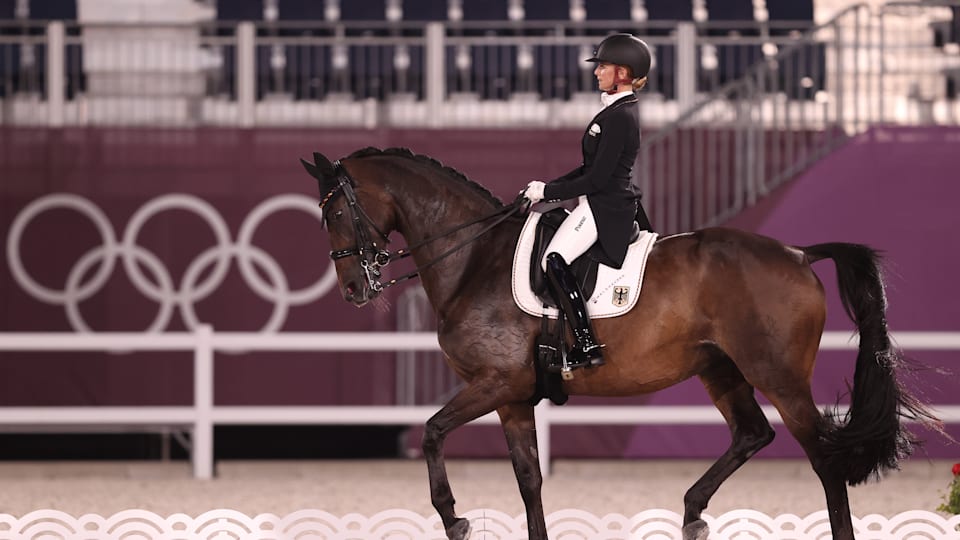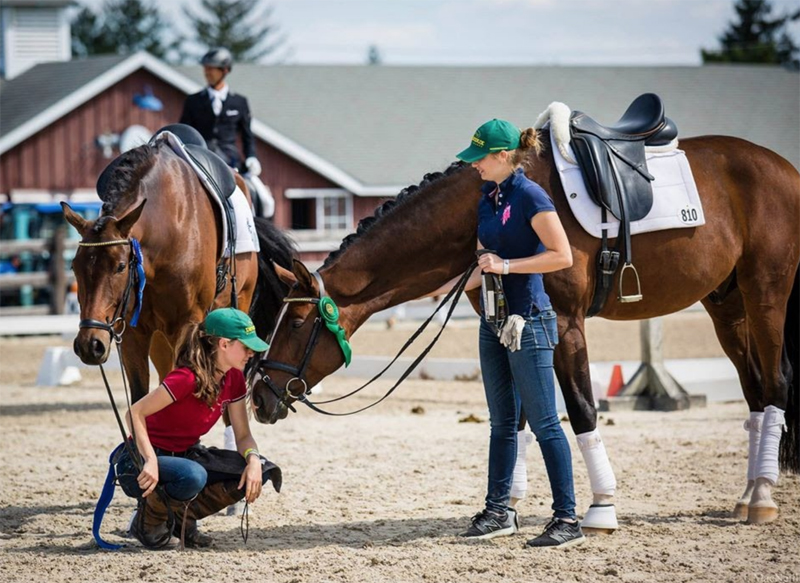Qualifying for the Olympics in equestrian sports is a significant achievement. It requires dedication, skill, and strategic planning.
If you dream of competing at this elite level, understanding the qualification process is essential. Olympic equestrian events showcase the best riders and horses from around the world. To qualify, you need more than just talent. You must meet strict criteria set by the International Federation for Equestrian Sports (FEI).
This includes achieving specific scores at designated competitions. Both horse and rider must be in top condition and demonstrate consistency. The journey is challenging but rewarding. By following the right steps and staying committed, you can reach this prestigious goal. This guide will walk you through the key requirements and steps to qualify for the Olympic equestrian events.
Introduction To Olympic Equestrian
The Olympic Equestrian events are a blend of tradition, skill, and athleticism. This unique sport brings together horse and rider to compete on a world stage. Understanding the history and disciplines of Olympic Equestrian can deepen your appreciation and guide your path to qualification.
History And Significance
Olympic Equestrian events date back to the early 20th century. The sport was first included in the 1900 Paris Olympics. Originally, only military officers could compete. But over time, it opened to civilians.
Today, it is one of the few Olympic sports where men and women compete equally. This inclusivity adds to the sport’s significance. Equestrian events highlight the special bond between horse and rider. This bond is built on trust, training, and teamwork.
Different Disciplines
Olympic Equestrian has three main disciplines. Each discipline tests different skills and abilities.
First is Dressage. This discipline is often called “horse ballet.” Riders guide their horses through a series of precise movements. Judges score based on accuracy, smoothness, and grace.
The second discipline is Eventing. This is an all-around test of horse and rider. It includes dressage, cross-country, and show jumping. Eventing challenges endurance, speed, and versatility.
The third discipline is Show Jumping. Riders and horses jump over a series of obstacles within a set time. The goal is to clear all jumps without knocking any down. Precision and speed are key in this discipline.
Each discipline requires dedication, training, and a deep connection with your horse. Understanding these can help you on your journey to the Olympics.
Credit: apnews.com
Eligibility Criteria
Competing in the Olympics Equestrian events is a dream for many riders. To turn this dream into reality, riders need to meet specific eligibility criteria. Understanding these criteria is the first step toward qualification. Below, we outline the key requirements in terms of age, nationality, and qualifying scores.
Age And Nationality Requirements
The International Federation for Equestrian Sports (FEI) sets the age and nationality requirements. Riders must be at least 18 years old to compete. This ensures that they have the necessary experience and maturity.
Nationality plays a significant role as well. Riders must hold citizenship of the country they wish to represent. Additionally, they should have a valid passport from that country. This ensures fair representation in international competitions.
Qualifying Scores And Rankings
To qualify for the Olympics, riders must achieve specific qualifying scores in recognized competitions. These scores are set by the FEI and vary by discipline.
Here is a table that outlines the minimum qualifying scores for each discipline:
| Discipline | Minimum Qualifying Score |
|---|---|
| Dressage | 66% |
| Show Jumping | 4 penalties or less |
| Eventing | MER (Minimum Eligibility Requirements) |
In addition to scores, riders must also have strong rankings. The FEI rankings system is used to evaluate a rider’s performance over time. Only the top-ranked riders qualify for the Olympics.
Here are some key points about rankings:
- Rankings are updated monthly.
- Only performances in FEI-sanctioned events count.
- Consistency is key; riders need to perform well in multiple events.
Understanding these criteria helps riders plan their path to the Olympics. Meeting the age, nationality, and qualifying scores is essential for Olympic dreams.
Training And Preparation
Training and preparation are key elements in qualifying for the Olympics Equestrian. Success in this prestigious event requires dedication, discipline, and a well-structured plan. You need to focus on finding the right guidance and creating an effective training schedule.
Finding A Qualified Coach
A qualified coach is essential. Look for someone with experience in Olympic-level competitions. They should have a proven track record. A good coach provides valuable insights and feedback. Their expertise helps improve your riding skills and techniques. They also offer mental and emotional support.
Research potential coaches thoroughly. Seek recommendations from trusted sources. Attend clinics or workshops to observe their teaching style. Choose a coach whose philosophy aligns with your goals. Building a strong relationship with your coach is crucial for progress.
Developing A Training Schedule
Creating a structured training schedule is vital. Consistency and routine build muscle memory and skill. Your schedule should include daily riding sessions. These sessions should focus on different aspects of riding. Balance flatwork, jumping, and dressage training.
Incorporate rest days to prevent burnout. Monitor your horse’s health and well-being. Adjust the schedule as needed based on performance and feedback. Regularly review and refine your training plan. This ensures continuous improvement and readiness for the Olympics.
Choosing The Right Horse
Choosing the right horse is crucial for those aiming to qualify for the Olympics Equestrian events. The perfect horse can make a significant difference in performance. This section will guide you through selecting a horse with the right breed and characteristics, and how to build a strong partnership with your chosen horse.
Breed And Characteristics
Different breeds have unique traits that can impact performance. Here are some breeds known for their excellence in equestrian sports:
- Thoroughbreds: Known for their speed and agility.
- Warmbloods: Famous for their strength and versatility.
- Arabians: Noted for their endurance and intelligence.
Consider these characteristics when choosing your horse:
| Characteristic | Importance |
|---|---|
| Temperament | Calm and trainable horses are easier to work with. |
| Conformation | Well-built horses have fewer health issues. |
| Soundness | Healthy joints and muscles are essential for longevity. |
Building A Partnership
Building a strong bond with your horse is key. Trust and communication are vital. Follow these steps to create a solid partnership:
- Consistent Training: Regular sessions help build trust.
- Positive Reinforcement: Reward good behavior to encourage learning.
- Patience: Every horse learns at its own pace.
Spending time outside of training is also important. Grooming, feeding, and casual rides strengthen your bond. Remember, a happy horse is a willing partner.
Competitions And Qualifying Events
Qualifying for the Olympics in Equestrian sports involves competing in various events. Riders must prove their skills in both national and international competitions. These events test their abilities and readiness for the Olympic stage.
National Competitions
National competitions are the first step to Olympic qualification. Riders participate in events organized by their country’s equestrian federation. These events help them gain recognition and ranking points. Success in national competitions is crucial. It shows a rider’s talent and dedication to the sport. These competitions are a platform to showcase skills and gain experience.
International Qualifying Events
International qualifying events are essential for Olympic hopefuls. Riders compete against top athletes from around the world. These events are organized by the International Federation for Equestrian Sports (FEI). Competing at this level is challenging. It requires top-notch performance and consistent results. Riders earn points and improve their rankings through these events. High rankings increase their chances of Olympic selection.
Participation in international events builds a rider’s reputation. It also provides exposure to different riding styles and techniques. This experience is invaluable for Olympic preparation. Riders must stay updated on the FEI calendar. This ensures they do not miss any important qualifying events.

Credit: olympics.com
Financial Considerations
Qualifying for the Olympics Equestrian is a dream for many riders. But the journey involves significant financial considerations. From training costs to competition fees, the expenses can be overwhelming. Understanding the financial aspects can help you plan better and increase your chances of success.
Budgeting For Training And Competitions
Creating a detailed budget is crucial for your equestrian journey. Training, equipment, and travel costs add up quickly. Here is a simple breakdown:
| Item | Estimated Cost |
|---|---|
| Training Fees | $500 – $2000/month |
| Equipment | $1000 – $5000 |
| Competition Entry Fees | $100 – $500/event |
| Travel Expenses | $500 – $2000/event |
Keep track of all expenses. Use a spreadsheet to monitor your spending. Adjust your budget as needed to avoid financial strain.
Sponsorship And Funding Opportunities
Finding sponsors can ease the financial burden. Many companies are willing to support talented riders. Here are some ways to secure sponsorship:
- Networking: Attend equestrian events and meet potential sponsors.
- Social Media: Build a strong online presence to attract sponsors.
- Professional Approach: Prepare a sponsorship proposal. Highlight your achievements and future goals.
Additionally, explore funding opportunities like grants and scholarships. Many organizations offer financial aid to aspiring Olympians. Research and apply for these opportunities.
Mental And Physical Fitness
Qualifying for the Olympics in equestrian sports requires more than just excellent riding skills. Riders need to maintain top-notch mental and physical fitness. This involves structured fitness programs and techniques to build mental resilience.
Rider Fitness Programs
To compete at the highest level, riders must maintain a rigorous fitness regime. A balanced program should include:
- Cardiovascular exercises like running or cycling
- Strength training for core stability
- Flexibility routines like yoga or stretching
Each of these components plays a vital role in ensuring the rider can perform at their best during competitions.
Mental Resilience Techniques
The mental aspect of competing is just as important as physical fitness. Developing mental resilience can help riders stay focused and calm under pressure. Effective techniques include:
- Mindfulness and meditation
- Visualization of successful rides
- Goal setting and positive affirmations
By incorporating these techniques, riders can enhance their mental toughness and improve performance.
Navigating The Qualification Process
Qualifying for the Olympics in equestrian sports is a challenging journey. Riders must adhere to strict guidelines and timelines. Understanding the process is key to success. This section will guide you through the essential steps.
Submitting Entries And Paperwork
Submitting entries and paperwork is a crucial step. Ensure all documents are completed accurately. Missing or incorrect information can lead to disqualification.
Here’s a list of what you need to submit:
- Entry forms
- Horse passports
- Rider licenses
- Health certificates
These documents verify eligibility and compliance with regulations. Submit them before the deadline to avoid issues.
Understanding Selection Procedures
Understanding selection procedures is vital. Each country has its own criteria. Familiarize yourself with your national federation’s rules. Typically, riders need to:
- Participate in qualifying events
- Achieve minimum eligibility scores
- Meet fitness and health standards
Selection committees review performances and scores. They choose riders based on merit and consistency.
Here’s a table summarizing key points:
| Step | Details |
|---|---|
| Submit Entries | Include all required documents |
| Qualifying Events | Participate in designated competitions |
| Meet Scores | Achieve minimum eligibility scores |
| Fitness Standards | Ensure horse and rider are fit |
Following these steps diligently increases your chances of qualifying for the Olympics. Stay informed and prepared at all times.
Success Stories
The journey to qualifying for the Olympics Equestrian is tough. Many have achieved this dream through hard work and dedication. Their stories inspire new generations of riders. Success stories show us that dreams can come true.
Interviews With Olympians
Many Olympian equestrians share their experiences. They talk about their daily routines, training methods, and sacrifices. These interviews give us a glimpse into their lives. We learn about the challenges they face and the joy of success. Hearing from Olympians helps aspiring riders understand what it takes to qualify.
Lessons Learned From Past Competitors
Past competitors offer valuable insights. They often share mistakes they made and lessons learned. These stories can help new riders avoid common pitfalls. Learning from others’ experiences is crucial. It saves time and effort. Competitors’ stories also teach us about resilience and perseverance. They show us that failure is part of the journey.

Credit: www.usef.org
Conclusion And Final Tips
Qualifying for the Olympics Equestrian events is a significant achievement. It requires dedication, skill, and strategic planning. To help you in your journey, here are some final tips to keep you on track and prepared for success.
Staying Motivated
Maintaining motivation is key. Set clear, achievable goals and celebrate small victories.
- Create a training schedule: Consistency helps improve performance.
- Join a supportive community: Engage with fellow riders for encouragement.
- Stay positive: Focus on progress rather than setbacks.
Preparing For The Big Day
Preparation is crucial for any competition. Here are some tips to ensure you’re ready:
- Know the rules: Familiarize yourself with Olympic regulations and guidelines.
- Practice under competition conditions: Simulate the event environment during training.
- Check your equipment: Ensure all gear is in optimal condition.
| Preparation Tips | Details |
|---|---|
| Mental Preparation | Meditate or use visualization techniques to stay calm. |
| Physical Fitness | Maintain a balanced diet and regular exercise routine. |
By staying motivated and thoroughly preparing for the big day, you’ll be well on your way to qualifying for the Olympics Equestrian events. Best of luck on your journey!
Frequently Asked Questions
What Are The Olympic Equestrian Disciplines?
Olympic equestrian disciplines include Dressage, Eventing, and Jumping. Each requires different skills and qualifications.
How Can Riders Qualify For The Olympics?
Riders must achieve qualifying scores at designated international competitions. They also need to meet national federation requirements.
What Are The Horse Requirements For Olympic Qualification?
Horses must be of a certain age and meet performance standards. They also need to pass veterinary inspections.
Do Riders Need Specific Training For The Olympics?
Yes, riders need specialized training for their chosen discipline. They must also work with experienced coaches and trainers.
Conclusion
Qualifying for the Olympics equestrian events takes dedication and hard work. Focus on consistent training with your horse. Compete in recognized events to gain experience. Pay attention to your horse’s health and fitness. Build a strong relationship with your coach.
Stay informed about qualification rules and deadlines. Keep your goals clear and stay motivated. Believe in yourself and your horse. With perseverance, you can achieve your dream of competing in the Olympics. Take one step at a time, and never give up.
Success is within reach for those who commit.



